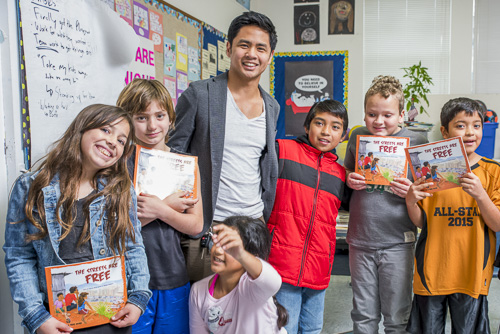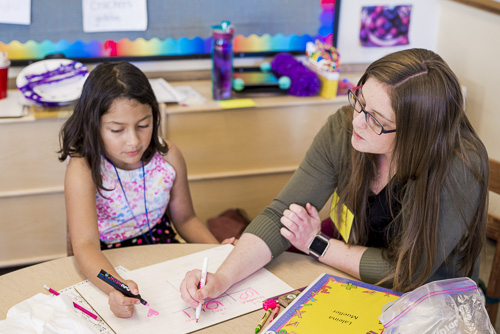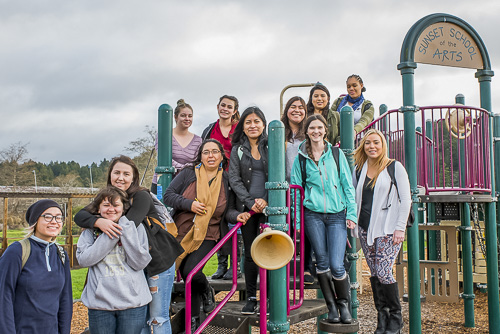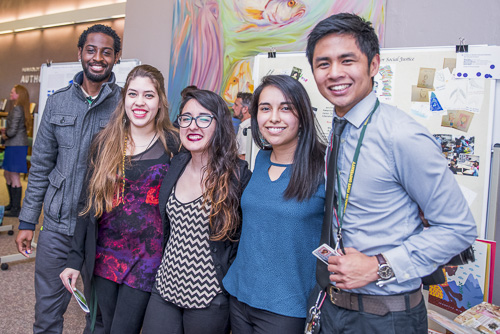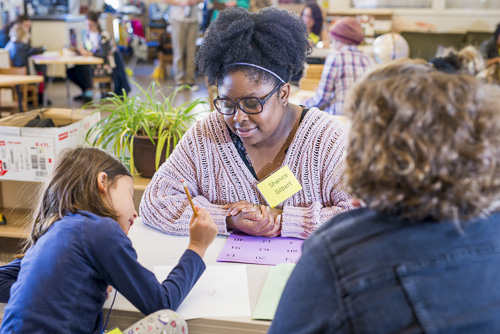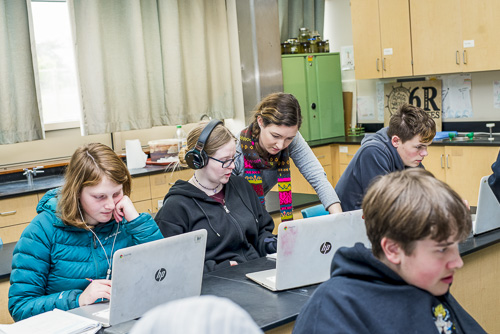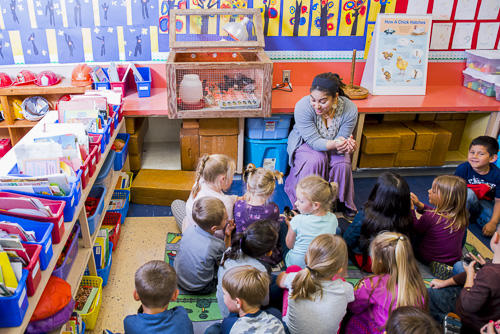School of Education's Statement in Support of Anti-Racist Education
Paulo Freire (1968/1972) suggested that “all education is political” and that “teaching is never a neutral act” (p.19). In a hyperpolarized time when comments and actions are often perceived as politically and ideologically loaded, it is critical to acknowledge that our collective work as teachers and teacher educators has become more political than ever, not in the sense of partisan politics, but more expansively in regards to the relationship between education and power. Education can serve as a tool for both socialization and conscientization, used to maintain a problematic status quo or to help those who have been historically oppressed, marginalized, and underserved to make meaningful change, and, as such, the political influence of educators should be taken seriously. In keeping with this, one of the recurring themes that all educators in the United States should be equipped to thoughtfully address is the politics of racial justice and equity in public education.
Many California educators, including our faculty here at Cal Poly Humboldt’s School of Education, have recognized that institutional racism has exacerbated inequity in regards to the distribution of power and resources in our school and classrooms, and has substantially affected the public education experiences of families, children, youth, and teachers, with miseducative, and, in many cases, traumatic consequences. As such, Californian education institutions have made considerable efforts to assure that discussion of race, and, hopefully, critical analysis and deconstruction of racism, be embedded in our curriculum.
For instance, the people of California have recently reaffirmed their commitment to social justice and ethnic studies with legislative action resulting in the passage of AB 2016 which requires the state board “to adopt, modify, or revise, a model curriculum in ethnic studies” in any school with students in grade 9-12, and AB 1460, which requires the California State University to provide for courses in ethnic studies at each of its campuses as an undergraduate graduation requirement. Here at Humboldt, we have adopted an institutional learning objective focused on “Equity and Social Justice” which suggests that “graduates will be able to identify and evaluate the systems of power and privilege and identify methods for creating diverse, inclusive, and racially just and equitable communities”, an objective very much in keeping with our institutional praxis prior to adoption. These actions will hopefully serve to systematize a curriculum that encourages consideration of diversity, equity and inclusion, such that we might combat institutional racism together, in a critically informed manner, forwarding the slow, historical struggle for civil rights that requires constant vigilance and action.
Conversely, at the Federal level, the President has signed the misleadingly titled Executive Order on Combating Race and Sex Stereotyping on September 22nd, 2020, barring Critical Race Theory-informed anti-bias trainings that unpack or question white privilege in contexts where Federal funding has been awarded. This Executive Order points to a monocultural, hegemonic ideation of “American-ness”, while questioning the validity of frameworks that might upset or compromise this nebulous, essentialist model. Othering any ideology in this manner, and centering another, is antidemocratic, and public education in America was, at the point of its inception, built around the premise of training citizens for engagement in pluralistic democratic life. Though the Tenth Amendment of our Constitution relegates authority over schools and their curriculum to State governments by default, the Administration is here attempting to leverage the strategy of threatening to withhold Federal funding to organizations that refuse compliance (so impactfully exercised in the era of the “No Child Left Behind” (NCLB) Law (2002-2015)), thereby exceeding their authority through an underhanded kind of extortion. Further, the right to maintain and express a broad range of disparate beliefs has been affirmed by the First Amendment of the U.S. Constitution as an inalienable right, and we are troubled by the Federal government’s prescriptions and prohibitions of ideas through the manipulation of curricular content in our schools.
We believe that our School’s longstanding commitment to critical pedagogy and anti-racist education is still relevant and significant, in spite of detractors in the Executive branch. In order for us to truly address the issues that disallow educational freedom and create a space for all students to thrive, we must begin by confronting modes of thinking that trouble such a space, including cultural and racial biases. Further, we are avowedly working collaboratively towards an educational system which strives for intersectional justice, but this is not achievable unless we face the realities of families, children and youth of color. How can we resolve anything if we continue to erase the experiences of so many public school educators and students? Critical race theory, LatCrit, TribalCrit and AsianCrit theory help to explain the lived realities of schooling for so many educators, youths, and children of color, while rehashed patriotism, selective censoring of information, and false narratives of American exceptionalism only lead to misrepresenting and disregarding the experiences and realities of the working class, LGBTQ+, Black, Brown, White, Indigenous, Asian, and individuals with disabilities. The very fact that the land where our University is situated has been the ancestral homeplace of the Wiyot people for thousands of years prior to our time here, obligates us to read, understand, to confront racial and cultural injustice through critical interrogation and dialogue, and to act towards reparative, structural change.
As an academic unit in an interdisciplinary and professional field, we pride ourselves on the multiplicity of ideas and the diversity of backgrounds that our colleagues and students maintain, as well as the depth and breadth of knowledge and experience that they bring to the critical work of teacher education. We believe that disensus and debate is essential for any democratic society in general, and is crucial for academicians and teachers specifically. We acknowledge that we are imperfect and that we need to be committed to ongoing, open-minded growth towards greater justice. We hope to confront and combat the institutional, economic, social and material inequities that undergird and reinforce the systemic injustice we are working against with our curriculum, and that our curriculum must exist in constant, contextual response to these factors, in both our schools and the communities that support them. While we commit to mitigative curricular advocacy, we will simultaneously plan and execute structural reimagining and action that will move us closer to breaking down systemic racism' and oppression, including hiring minoritized or underrepresented faculty and staff, and making financial and material resources and support more available to minoritized and underrepresented students. We honor the sharing of ideas and frameworks for understanding, and we refute and disavow any document that directs us to do otherwise.


